Photo: Bob McGaw (left) speaking on the Citizens’ Petition at the Special Town Meeting
A citizens’ petition that would upend the transition of Recreation Department staffers into the Beech Street Center collapsed as Special Town Meeting voted on Wednesday, May 21, to table the Special Town Meeting article after members said the language of the article was “confusing” about what it was proposing to do.
“This is seemingly a simple motion. But, in fact, it’s rather confusing,” said Jack Weis (Precinct 1). “We are being asked to vote for something that is apparently not fully baked, and we haven’t even been given detailed information on what we’re being asked to approve.”
During the Special Town Meeting held on the final night of the annual Town Meeting season, the citizens’ petition—STM Article 3: “To Protect the Beech Street Center”—presented by petitioners Robert McGaw and Paul Joy was the most discussed article this spring. Senior Center supporters raised concerns about a proposal from the town to relocate three recreation personnel and the town’s Veterans Agent from the Homer Building to the Beech Street Center.
Supporters of the status quo believe the transfer violated a 2011 Memorandum of Understanding between the town and the Friends of Belmont Council on Aging in which the primary operation of the Center would be senior-based until 2049 unless Town Meeting by a two-thirds vote authorized a change of use.
While it received approximately 300 resident signatures, the petition had an uphill battle in its attempt to undo the movement of personnel. The town presented a legal opinion by the Boston law firm Anderson & Kreiger saying that adding three staffers within the administrative offices did not constitute a change of use of the mission of the Senior Center and thus did not trigger the requirement of a two-thirds vote by Town Meeting, said Town Moderator Mike Crowley.
Even if it came before members, a “yes” vote on the citizens’ petition article would be a “non-binding resolution that expresses an opinion about the [town’s] plan,” according to the Town Council. The town noted that the legal opinion was authored by the same person, Town Council George Hall, who wrote the MOU 15 years before.
Finally, the petition’s wording didn’t assist the petitioner’s case. Claiming the MOU did not specify how to stop changes to the Senior Center, the supporters were asking members to defeat the town’s proposal by voting “no” rather than writing the article where it would seek a “yes” vote.
The debate
Crowley placed a tight hold on the debate by establishing rules, including “experimenting” with a 40-minute limit (with a 20-minute extension if needed) on questions and comments. While saying members can certainly talk about proposed changes and advisability, Crowley said the meeting would not debate the legality of the 2011 memorandum nor question the management structure of the Beech Street Center or how senior services are managed, as all would be deemed out of scope.
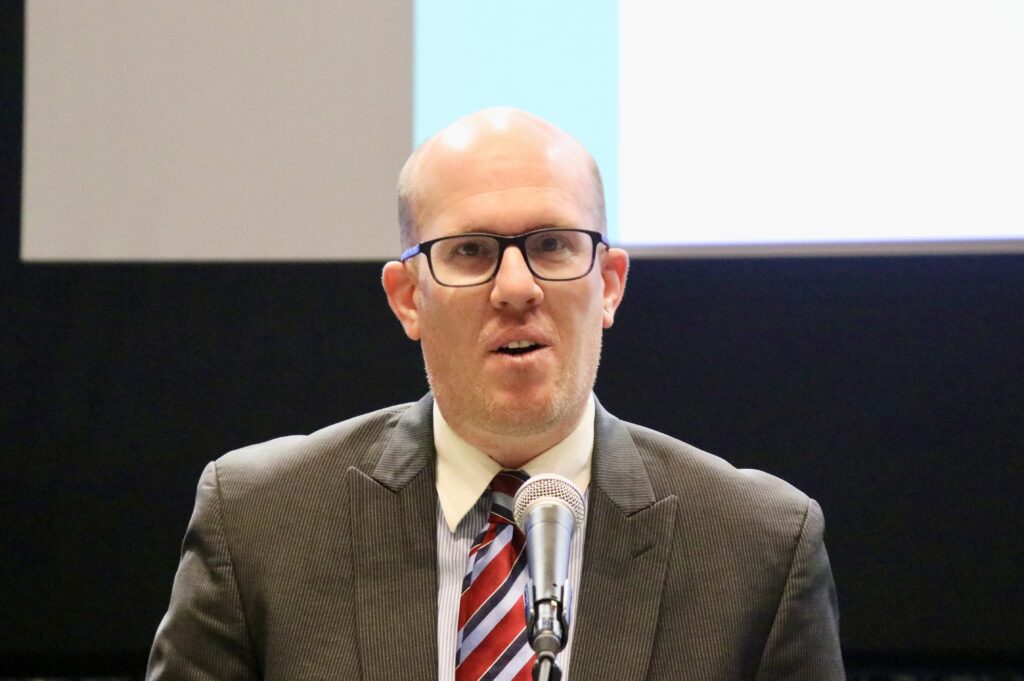
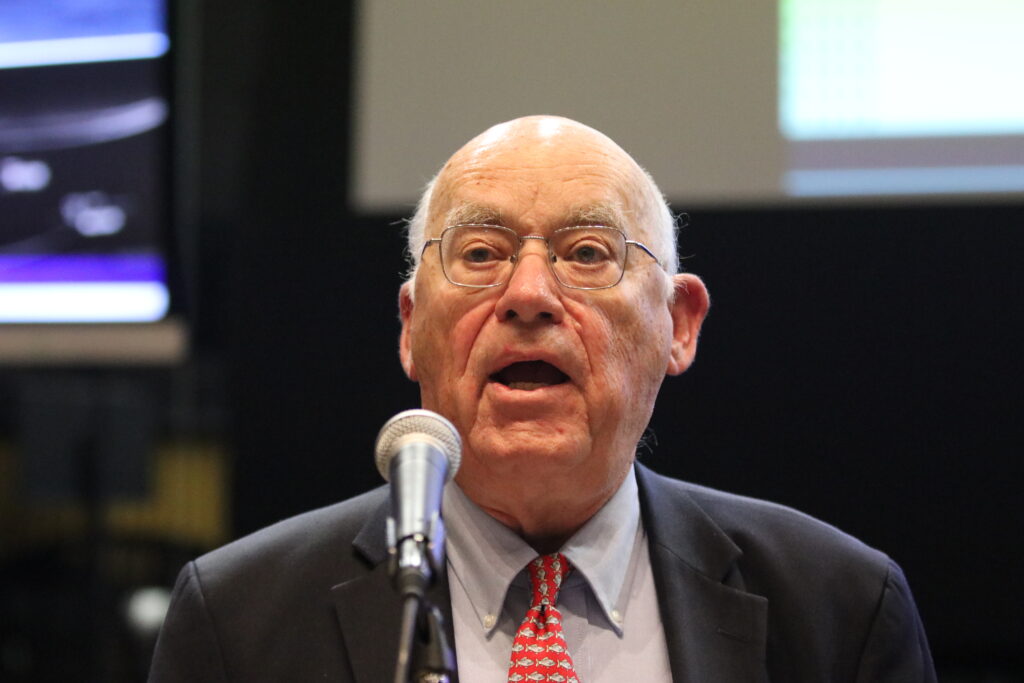
Joy (Precinct 7) kicked off the debate by proclaiming Belmont to be more than “just a place. It’s a promise of community, trust, and care for every generation.” He evoked the work of former town meeting member Barbara Miranda, who was a leader in constructing the Senior Center, and how her legacy isn’t just history—”it’s a living promise. The 2011 memorandum is not just legal jargon. It’s Belmont’s word to the people who poured their lives into this town.”
Reiterating the article’s main argument, Joy said the MOU’s requirement that Town Meeting approve a change of use by a 2/3 vote is “not a suggestion, it’s a contract, it’s someone’s word binding us to those that came before and those still to come.”
“Is it not unreasonable to conclude that these plans come with significant long-term implications,” Joy warned. “We must ask how these changes will affect the seniors’ identity as a senior center over time, especially if recreation expands.”
“So I ask you tonight, from the bottom of my heart, will you stand with them? Will you vote ‘no’ on Article 4 and tell the world that Belmont is a town that listens, that it keeps its word, that it believes in its people.”
McGaw (Precinct 2) pointed to the April 23rd COA meeting, which alarmed seniors and saw them sign the petition “to seek to protect the Senior Center, to keep the town focused on senior needs, to maintain the ability of the Senior Center to provide additional programming, to serve an increasing senior population, which is now over 25 percent of Belmont.”
“Our position is simply this: if the town wants to convert portions of the Senior Center to other uses, it should follow the process outlined in the 2011 memorandum,” and obtain a 2/3 approval from the Town Meeting, said McGaw.
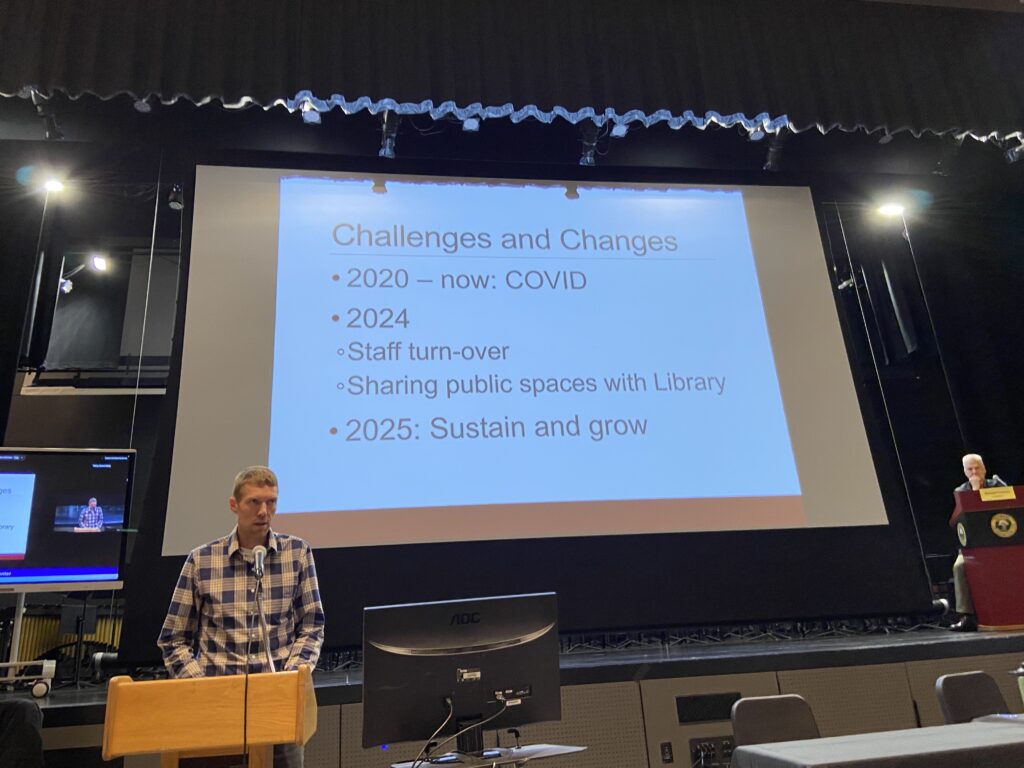
Select Board Vice Chair Matt Taylor—also the board’s liaison to the Council on Aging—defended the move, saying the Rec Department personnel “time and again” assist in tasks for a short-staffed COA to sustain COA services for seniors. This is a team effort.”
“What the petitioners saw in April was us collaborating and consulting with the COA” without any demands by the town to create a separate space for the Rec Department staff,” said Taylor. “All of this was to support seniors in programming,” he said.
Taylor also reiterated the board’s support for a trial run of the staffers at the Center, which will monitor, gather data, and ” be responsive to any issues that may arise affecting Senior Services.”
“No one at any time is suggesting or trying to change the primary purpose of the Beech Street Center,” Taylor said.
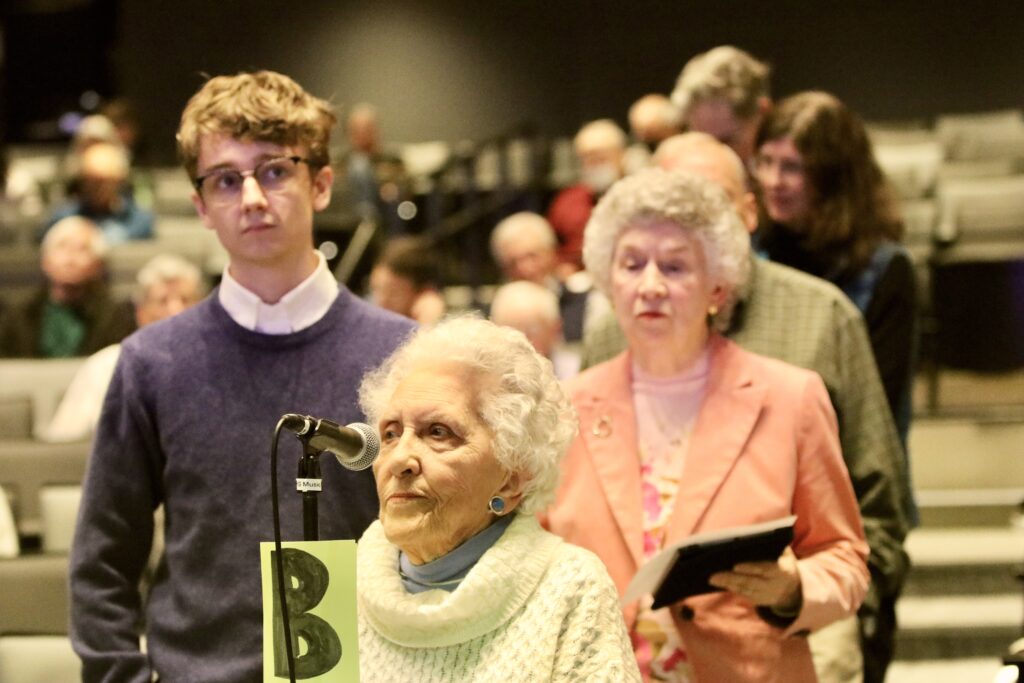
After Maryann Scali (Precinct 2) helped define what “junior” seniors and “senior” seniors as she advocated for a no-vote, the first whiff of trouble for the petitioners came from the third speaker, Mary Lewis (Precinct 1), who said she found “this motion … deeply confusing.” Lewis said the article required a no vote to support preventing the proposed alterations, conversion, and use of space at the Center by the Recreation Department staff. But at recent presentations, the town has said it will not be building out areas of the Senior Center, such as creating a new door to accommodate the recreation-related business.
“So if we vote yes, we are affirming something untrue. If we vote no, we are agreeing with something that we might disagree with,” Lewis said, summing up the dilemma facing members.
“This is fundamentally a decision around the utilization of office space by town departments, and I would submit that a body of 288 people who have been given scant information about this is not the right body and not the right time for us to make a decision about that,” said Weis who said he would be voting “abstain.”
Angus Abercrombie (Precinct 8) was the first of three members who questioned whether the best use of the Beech Street Center would be accomplished by placing restrictions on having recreation personnel in the building. Taylor said that the town has “robbed the Recreation [Department] of staff and attention in order to sustain the services at the COA.” Having the recreation staff in the office space will allow
Judith Feinleib (Precinct 6), who authored a lengthy online defense of voting no, said the debate isn’t about “all the great things” at the Beech Street Center but rather “whether the nature of the agreement between the town and its citizens, especially seniors, is being changed.” Since she believed it would be, Feinleib said voting no is the only option.
After Ade Bapista (Precinct 3) attempted to call the question early on —it failed by a wide margin—Ann Marie Mahoney (Precinct 1) went before the microphone to outline the history of the choices and decisions made regarding creating the Beech Street Center.
Mahoney said her message was that “we make choices and that things change,” noting that Chenery Middle School was designed and built for grades five through eight but now houses grades four, five, and six, which have very different requirements. “The Chenery is still a school regardless of which grades are housed, and we’ve adjusted and created a wonderful environment.”
“I view this reorganization of our department heads and staff as an opportunity. It’s an opportunity for senior programming, not an intrusion or incursion. With careful planning, the primacy of the senior citizens can be respected and promoted at the Beach Street Center, and the vibrancy of recreation opportunities can be added.”
“We make changes. We are one town. We should make changes for the positive. If I can close with my favorite person, Winston Churchill, “To improve is to change. To be perfect is to change often.”
Jean Widmer (Precinct 5) said that as the former School Committee chair, teacher, and educator, she had repeatedly contacted seniors to ask for their support of many Prop 2 1/2 overrides and debt exclusions for the town and schools. “Without the support of those seniors, the overrides would never have passed,” she said, and Town Meeting members should repay that debt by keeping the Center for seniors.
Christine Doyle, (Precinct 6) who is also the chair of the Comprehensive Capital Budget Committee, said no matter where citizens stood on the 2023 override vote, “both sides begged to the town staff and Select Board to look for ways to increase revenues and reduce expenses.”
“In my mind, this potential proposal improves services for constituents and residents, it improves services for employees … and improves space optimization” in several town buildings, said Doyle.
Glenn Wong (Precinct 7) came on Zoom to make a motion to dismiss. His reason for the postponement was the general confusion of the main motion, where a yes vote “did not reflect my understanding of the situation and voting no didn’t [reflect his] understanding from the debate.”
Several members attempted to use the debate to continue advocating, only to have calls of “point of order!” as the body had heard enough. After one hour and 40 minutes, the citizens’ petition was dismissed, 172-68-4.
And the rest of the night
A Special Town Meeting overwhelmingly passed a long-promised Senior and Veterans Tax Relief (STM Article 2), 227-3-1. However, members were far from happy with the details, feeling the amount of relief and the number of elder residents being helped were insufficient compared to the levels of support in cities such as Somerville and Cambridge.
Chair of the Senior Relief Task Force Geoff Lubien admitted to the body that the article was not the easiest to explain, but he got through it. The package is made up of several provisions:
- Adopting a state law providing an additional real estate exemption for taxpayers,
- Adjust the veteran’s exemption to the state’s inflation rate,
- Adopting a second state law allowing residents to pay less in taxes if their exemption is greater than the previous year,
- Provide a statutory exemption for low-income seniors with limited assets of $40,000,
- Reduce the minimum eligibility age from 70 to 65.
Only 21 homeowners are currently taking advantage of the town’s existing program, but Lubein said that number is “the foundation of the future program.”
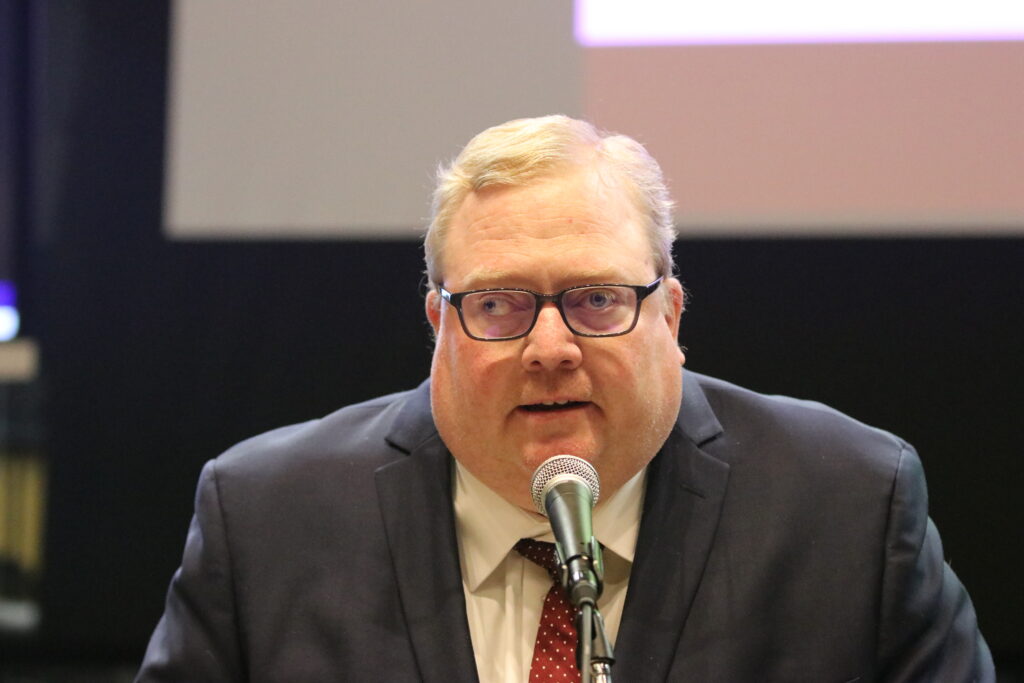
Liz Allison (Precinct 3) asked how much the new program would cost the town and where it would be made up. Lubien said the immediate impact could be up to $50,000 in maximum benefits. The Select Board’s Matt Taylor said the Board of Assessors Overlay account – a state-required withholding to cover abatements and exemptions – will pay for the expense. Jack Weis (Precinct 2) said the amount in relief would have an “inconsequential marginal impact” on the town’s $150 million operational budget, so as “a matter of fairness,” it should pass.
Town Administrator Patrice Garvin presented STM Article 4 on using $600,000 released from the Board of Assessors Overlay account for three one-time funding needs:
- $100,000 to the Conservation Commission towards work required to establish a conservation restriction for Rock Meadow,
- $275,000 to the Capital Stabilization Fund, and
- $225,000 to begin a playing field maintenance program.
Speaking on the first motion, Conservation Commission Chair Chris Morris said the funds will go towards resource mapping, title research, and creating a master plan for the popular conservation area—which includes the town’s Victory Garden—which will result in the land being placed under a conservation restriction, a legal agreement designed to permanently protect the conservation values of a property by defining allowed uses.
“This is step one … of all the work that will require us to be good stewards of this property and to actively maintain it appropriately,” said Morris.
Anyone who has walked or played on the town’s 23 acres of parks and playing fields will know “deteriorating conditions are becoming more evident to users each day,” said Town Administrator Patrice Garvin. The reduction of DPW staff, budget constraints, the continuous activity by youth athletics teams, and the damage from unrestricted dog use have resulted in the town “triaging our fields rather than maintaining them with a formal plan,” she said.
With an infusion of $225,000, the town proposes “ramping up maintenance by outsourcing professional expertise” to help the fields recover from years of deferred upkeep and “allow for a better understanding of usage patterns and long-term sustainability,” said Garvin.
“This is not a short-term fix. It’s the beginning of a smarter, more sustainable building management strategy that addresses past conduct and sets up the future,” she said.
Ira Morganstern (Precinct 7) asked if this plan is the best use of town funds, saying it’s not clear what the true cost of this long-term program will be.
Yes,” answered Garvin. “We have to start somewhere.”
Taken together, the three measures were approved 208-4-2.
Back to the Town Meeting for a final article, the Community Preservation Committee approved $472,338 to revitalize the West of Harris Field softball field and effectively complete the Middle and High School campus. The restored JV softball diamond and grass soccer and field hockey pitch have been discussed for years by the School Committee that controls the field. Work will begin this fall, just as the rink construction is completed, with an opening date of Spring 2026.
Peg Callahan (Precinct 7) reiterated a point made by several members that the only reason the town is picking up the nearly half-million dollar tab for the renovation is that the Middle and High School Building Committee “completely abandoned” the $3 million reconstruction of the fields it had promised to complete as part of the original 2018 plan approved in a $213 million debt exclusion approved by voters.
“Fitzie” Cowing (Precinct 8), who is a strong proponent of youth sports, proclaimed, “I’m really sorry softball” when she said she’d be voting no as she believed that the funding “is an expenditure of community funds without a community process.” Had there been a public engagement on WoHF, citizens would have shown a lack of support, as the town can not maintain the current fields. Rather, the town should invest in “turf” or synthetic fields to take the burden off grass fields.
Chris Doyle said that under current state restrictions, a turf field can not seek Conservation Preservation Commission funding. Thus, any synthetic surface pitch, which would cost nearly $2 million to install, must be in the CCBC’s inventory, which is backlogged with a slew of projects, including replacing the Harris Field turf in two years at $1.9 million.
Instead, Doyle advised the Town Meeting to “grab the money and run” from the CPC, but continue the dialogue to obtain the needed turf pitch.
The WoHF measure passed 167-19-5, and with the clock reading 11:23 p.m., the Town Meeting came to a quiet end. It will be back for the fall Special in October.
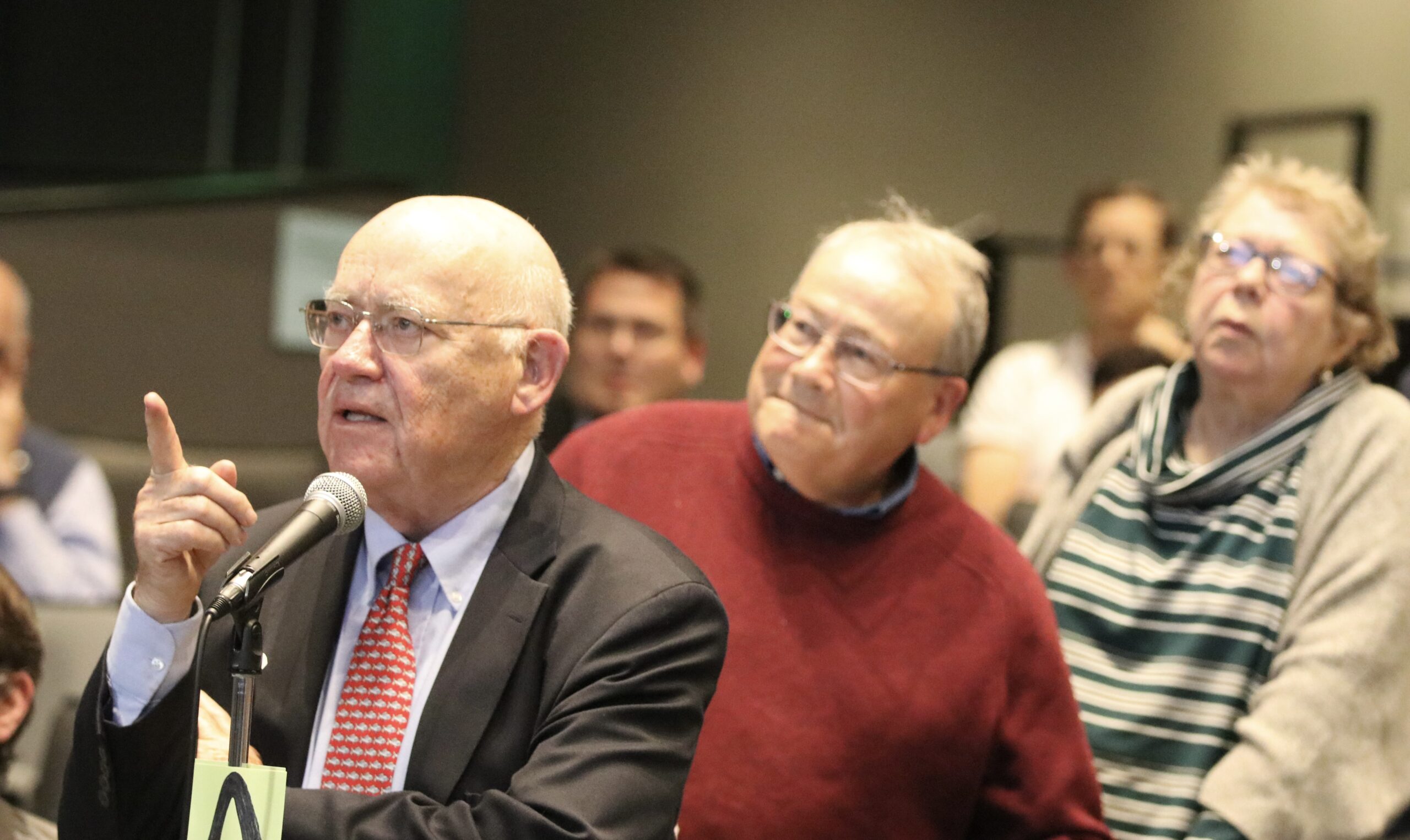







Leave a Review or Comment